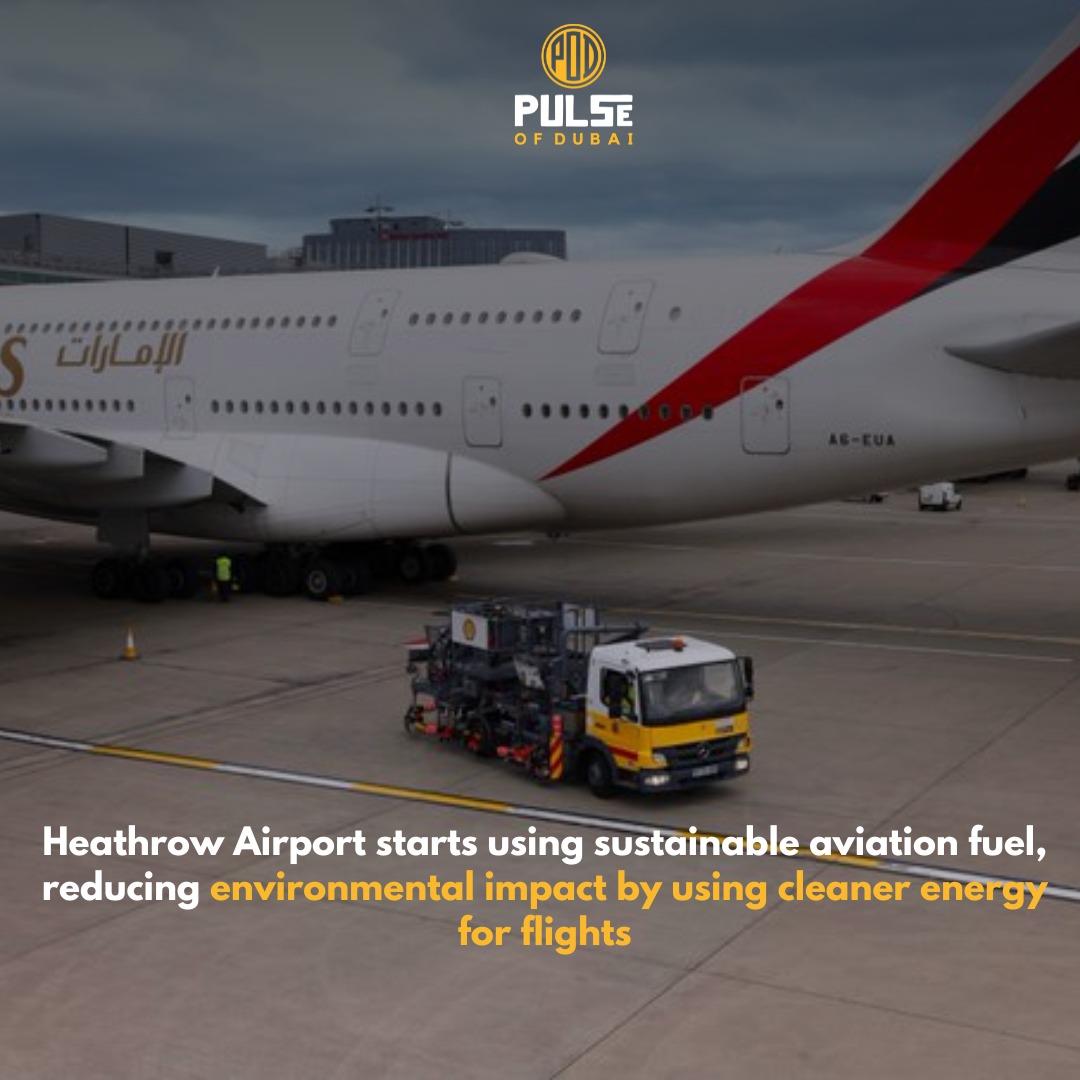Heathrow Airport’s adoption of sustainable aviation fuel represents a significant milestone in its ongoing commitment to reducing its environmental footprint and promoting sustainable practices within the aviation industry. By transitioning to cleaner energy sources for aircraft operations and flights, Heathrow aims to mitigate the environmental impact of air travel and contribute to global efforts to combat climate change.
Sustainable aviation fuel (SAF) is derived from renewable feedstocks such as waste oils, agricultural residues, and sustainable biomass sources. Unlike conventional jet fuel, SAF produces significantly lower carbon emissions when burned, making it a more environmentally friendly alternative for powering aircraft.
One of the key benefits of SAF is its potential to significantly reduce greenhouse gas emissions associated with air travel. By replacing a portion of conventional jet fuel with SAF, airlines can reduce their carbon footprint and mitigate the environmental impact of their operations. This aligns with Heathrow’s sustainability goals and its commitment to achieving net-zero carbon emissions by 2050.
Moreover, the adoption of SAF by Heathrow Airport demonstrates industry leadership and fosters innovation in sustainable aviation technologies. By investing in alternative fuel solutions and supporting the development of SAF production facilities, Heathrow is driving forward the transition to a more sustainable aviation sector. This not only benefits the environment but also encourages other airports and airlines to follow suit and adopt similar initiatives.
Additionally, the use of SAF at Heathrow Airport enhances the airport’s reputation as a responsible corporate citizen and a leader in environmental stewardship. By proactively addressing the environmental challenges associated with air travel, Heathrow demonstrates its commitment to sustainability and sets a positive example for other airports and transportation hubs around the world.
Furthermore, the adoption of SAF supports the broader transition towards a low-carbon economy and the decarbonization of the transportation sector. As governments and industries strive to meet ambitious climate targets, the use of sustainable aviation fuel becomes increasingly important in achieving these objectives.
In conclusion, Heathrow Airport’s adoption of sustainable aviation fuel represents a significant step towards reducing the environmental impact of air travel and promoting sustainability within the aviation industry. By embracing cleaner energy sources for aircraft operations and flights, Heathrow demonstrates its commitment to environmental stewardship, innovation, and corporate responsibility.









